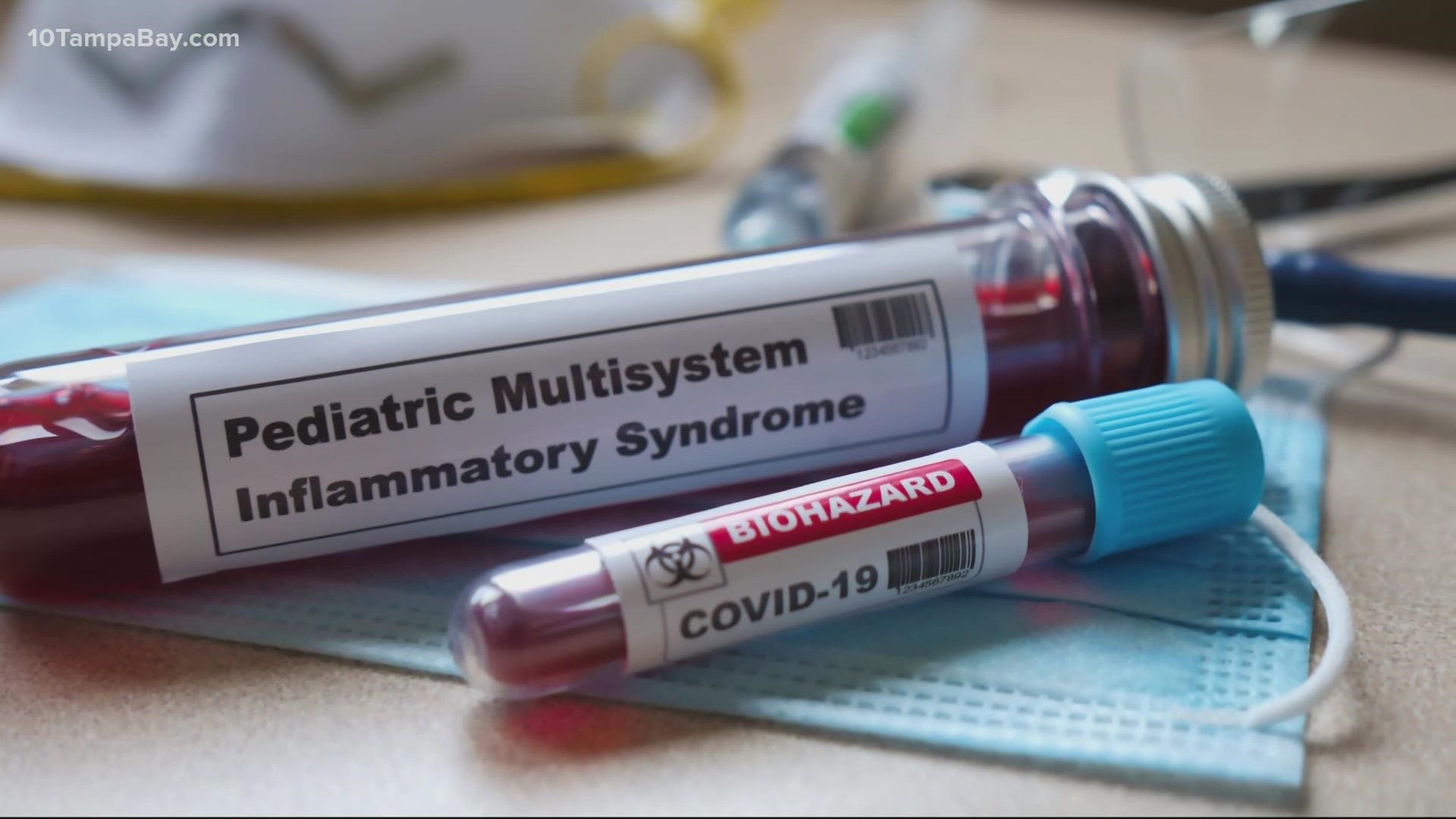ST. PETERSBURG, Fla. — Pediatric COVID hospitalizations are at record levels across the country, including here in Florida.
Throughout the pandemic, health officials have warned about more severe cases of COVID-19 in people who are elderly or have underlying conditions. Thus, children are typically at a lower risk of developing the most serious cases of COVID that require hospitalizations.
But even though omicron appears less severe than other variants, infectious disease experts warn that anytime a virus is highly contagious, we're bound to see more bad outcomes simply because the virus will touch more people.
"From a pediatric standpoint, we’re probably at our worst point of the pandemic right now," said Dr. Joseph Perno, the Chief Medical Officer at Johns Hopkins All Children's Hospital in St. Petersburg.
However, Perno said he's also concerned for what's to come as young patients with COVID develop Multisystem Inflammatory Syndrome in Children (MIS-C) in the coming four to six weeks.
"We’re very afraid of the complications we’ve seen in pediatrics where they get the inflammatory syndrome," Perno said.
Pediatric specialists across the state want families to be informed now about MIS-C because the disease can show up in kids who had asymptomatic COVID infections.
Dr. Claudia Espinosa, a pediatric infectious disease specialist at the University of South Florida who treats patients at Tampa General and St. Joseph's said oftentimes, her patients with MIS-C don't know they had COVID until they test for antibodies.
BOTTOM LINE: With so much community spread of omicron, it's possible a young person could develop MIS-C regardless of the severity of a COVID-19 infection.
"They’ve got fevers, they’ve got abdominal pain, they can have headaches, they can have rash, abnormalities in coagulation, " explained Dr. Kenneth Alexander, the Chief of Pediatric Infectious Diseases at Nemours Children’s Hospital in Orlando.
WHAT TO LOOK FOR:
- fever
- belly pain
- vomiting or diarrhea
- a rash
- neck pain
- red, cracked lips
- red eyes
- being extra tired
- swollen hands or feet
- swollen lymph nodes
WHAT TO DO:
Be aware of this condition and call your pediatrician. Alexander recommends seeking care at a children's hospital because their staff will have the most experience with this new and mysterious disease.
"Right now MIS-C is common so a kid with abdominal pain, where we might have thought about appendicitis, now we should probably think first about MIS-C," Alexander said.
TREATMENT:
Patients will be admitted to the hospital and given intravenous (IV) fluids to reduce inflammation. Alexander said most young people respond well to steroids.
WHO'S LIKELY TO GET IT?
Alexander has seen patients as young as six months up to older teenagers.
HOW MANY KIDS HAVE HAD IT?
The Florida Department of Health stopped publishing pediatric reports in June of 2021 before the delta wave. As of that last report, there were 189 cases in Floridians younger than 18. 10 Tampa Bay reached out to the state for current data. We'll update this story when we get the information.

